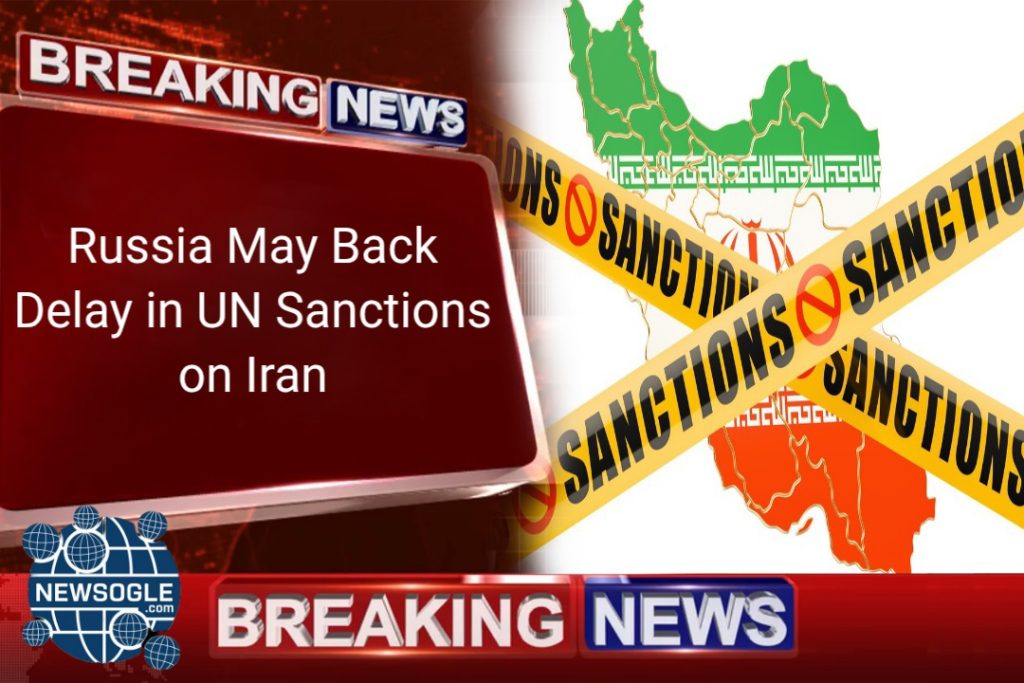
VIENNA, AUSTRIA – In a move that could significantly alter the geopolitical landscape surrounding Iran’s nuclear program, Russia is reportedly considering supporting a six-month delay in the implementation of United Nations sanctions on Tehran. The potential delay is being floated as a last-ditch effort to create a window for the stalled nuclear negotiations to resume. This diplomatic maneuver comes at a critical juncture, with Western powers, led by Europe, demanding that Iran take concrete steps to honor its commitments and return to the negotiating table. The fate of the sanctions, and potentially the entire nuclear deal, hangs in the balance, with a decision expected by the end of August.
The Current Stalemate: A Fragile Deal on the Brink
The multilateral agreement, known as the Joint Comprehensive Plan of Action (JCPOA), has been teetering on the brink of collapse since the United States unilaterally withdrew from it in 2018. Following the U.S. withdrawal, Iran began to progressively scale back its compliance with the agreement’s terms, increasing its uranium enrichment levels and reducing cooperation with the International Atomic Energy Agency (IAEA). This escalation has led to a tense standoff, with the remaining signatories—including China, France, Germany, Russia, and the United Kingdom—scrambling to find a diplomatic solution.
For months, negotiations in Vienna have been stalled, with both sides blaming the other for the lack of progress. Iran has demanded that the U.S. first lift all sanctions imposed after the 2018 withdrawal, while the U.S. has insisted that Iran must first return to full compliance with the JCPOA. This impasse has created a dangerous cycle of escalation and has brought the region closer to a full-blown crisis. The potential for the UN sanctions to be triggered in the near future has only added to the urgency of the situation.
Russia’s Diplomatic Initiative: A Bid to Break the Impasse
Russia, a key signatory to the JCPOA, has consistently played a central role in the nuclear talks. As a major trading partner of Iran and a geopolitical ally, Moscow has a vested interest in the deal’s survival. The proposed six-month delay in UN sanctions is seen as a way to provide a much-needed cooling-off period and to give the negotiations a fresh start. Russia’s argument is that if the sanctions are allowed to snap back, it would be a death blow to the JCPOA and would eliminate any hope of a diplomatic resolution.
By supporting a delay, Russia is essentially offering a carrot to Iran, signaling that there is still a path forward through diplomacy. This move is also a message to the U.S. and Europe that a hardline approach may not yield the desired results and that flexibility is needed to prevent a full-blown crisis. The Russian proposal is a calculated risk, as it could be seen as an attempt to appease Iran and to undermine the pressure tactics of the Western powers.
Europe’s Stance: A Demand for Reciprocity
While Russia’s proposal offers a potential lifeline to the nuclear talks, it has been met with a degree of skepticism from Europe. The European powers, particularly France, Germany, and the UK, have been clear in their demands. They insist that any delay in sanctions must be contingent on Iran’s commitment to return to the negotiating table and, more importantly, to resume inspections by the IAEA.
The IAEA’s access to Iran’s nuclear facilities is a key part of the JCPOA, and without it, it is impossible to verify whether Iran is complying with its non-proliferation obligations. Europe’s position is that Iran must first take a concrete step to restore confidence before any concessions on sanctions can be made. They fear that a delay in sanctions without a corresponding commitment from Iran would be a sign of weakness and would only encourage Tehran to push for further concessions.
The European demand for Iran to resume inspections and talks is a reflection of their deep concern over Iran’s nuclear program. They believe that time is running out and that a failure to reach an agreement could have severe consequences for regional stability and global security. The European powers are in a difficult position, as they want to save the JCPOA but are also under pressure from the U.S. to take a tougher stance on Iran.
The Road Ahead: A Critical Decision Looms
The decision on whether to delay the UN sanctions will have far-reaching implications. If the sanctions are delayed, it could provide the much-needed space for the nuclear talks to resume. However, it also carries the risk of being seen as a sign of weakness, which could embolden Iran to continue its policy of escalation. If the sanctions are allowed to snap back, it would likely lead to a complete breakdown of the JCPOA and could trigger a new round of regional tensions.
The next few days will be critical. Diplomats from all sides are working tirelessly to find a solution that can satisfy all parties. Russia’s proposal is a bold move, but its success will depend on whether Iran and Europe can find common ground. The world will be watching closely as a decision is made that could shape the future of nuclear diplomacy and the stability of the Middle East.






